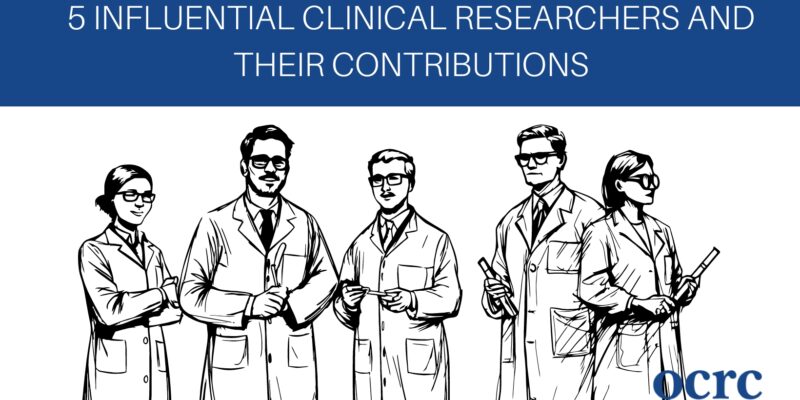
Clinical research plays a critical role in achieving medical progress and improving the lives of people around the world. Throughout the centuries, countless clinical researchers have made significant contributions to science and humanity, including such famous researchers as Marie Curie and Louis Pasteur.
But what about more recent clinical researchers? Learn more about five influential researchers and what they’ve contributed to science and humanity.
Torsten Wiesel was awarded the Nobel Prize in 1981 for the discovery he made regarding the way the visual system processes information. His research has exponentially improved the treatment of childhood cataracts and strabismus.
The experiments he conducted about how visual systems work involved preventing a kitten from seeing except out of one eye and monitoring the response of the animal’s visual system once it could see out of both eyes again.
The information he gleaned from the experiments led him to pinpoint the critical period during which vision impairments need to be corrected after a child’s birth. Because of Torsten Wiesel’s research, surgeons operate more quickly if a child has cataracts.
In 2009, Elizabeth Blackburn won the Nobel Prize in Physiology or Medicine for uncovering the molecular makeup of telomeres. Telomeres are caps at the end of chromosomes that help preserve genetic information. She also co-discovered telomerase, an enzyme that assists in maintaining telomere ends.
By being able to demonstrate that cells age as telomeres shorten, she’s led other scientists to apply that information to research whether the aging process is connected to telomeres. Her work has also included showing that chronic stress can shorten telomeres and lead to a variety of health issues.
Sir Roy Calne performed the first liver transplantation in Europe (1960s), as well as the first intestinal transplant in England (1990s). In 1994, he was able to successfully conduct a combined transplant of a liver, stomach, kidneys, and pancreas.
To manage all these transplants, he became a pioneer in the study of immunosuppression, which is the use of drugs to prevent the immune system from responding to transplanted organs. He was one of the first surgeons to introduce the use of cyclosporin, an immunosuppressant, in clinical care.
Before this drug, the only option was to use whole-body radiation, which was fatal in most instances. Sir Roy Calne essentially developed the first anti-rejection drug, making organ transplantation a reality.
Tu Youyou is a Chinese medical scientist who discovered artemisinin and dihydroartemisinin, both of which can treat malaria. By combining her knowledge of ancient Chinese medicine with Western medicine, she was able to find and isolate an active ingredient in wormwood that had the desired effect on the malaria parasites.
After a number of trials, Tu Youyou discovered that the ingredients worked only when prepared with a solvent other than water and at a low temperature. After achieving a 100% success rate in mice, she moved on to human trials. The results of those trials transformed artemisinin and dihydroartemisinin into crucial treatments for malaria.
Developmental biologist Sir John B. Gurdon has pioneered cloning while also focusing on how mature cells can be made into stem cells. He began with cloning frogs, learning to remove the original nuclei from frog egg cells using ultraviolet light. The tools and techniques he used in the 1960s are still being employed today.
His experiments led the scientific community to recognize that the nucleus of a living cell in a creature’s body contains the creature’s entire genetic makeup. Now, he’s focused on signaling factors responsible for cell differentiation.
Without clinical researchers, modern medicine would not be nearly as advanced as it is today. At Orlando Clinical Research Center, we’re dedicated to doing our part in helping medicine move forward.
We specialize in running Phase I–IV trials to investigate medicines for biotech and pharmaceutical companies. With our state-of-the-art facilities and a team dedicated to offering services of the highest quality, you can trust Orlando Clinical Research Center with a variety of clinical studies.
Contact us today to learn more about what we offer.
